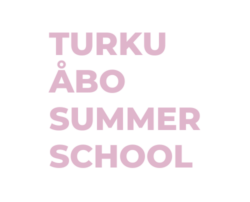Foundations of multiculturalism
5 ECTS | On-site in Turku | 1-30 August 2024 with contact teaching 5-16 August 2024
Can, and should, a democratic society treat all its members as equals? Should it recognize their specific cultural identities? Is political recognition of ethnicity, religion, or gender essential to a person’s dignity? These are some of the questions at the heart of multiculturalism. This course examines multiculturalism through a focus on its historical, political, sociological, and philosophical foundations.
Key concepts of the course consist of multiculturalism, race, ethnic identity, minority cultures, minority rights, language identity, equity, power and privilege.
Topics:
- Historical and Philosophical underpinnings of multiculturalism
- The Civil Rights Movement
- Recognition and identity
- Race and ethnicity
- Rights of sexual minorities
- Rights of Religious minorities and Orientalism
- Power and Privilege
- Language and identity
Learning outcomes
Students completing this course will be able to
- Analyse and interpret the historical, political, philosophical, and sociocultural foundations of multiculturalism.
- Analyse how social structures of race, ethnicity, class, gender, religion, ability, and sexual orientation work to create relations that privilege some and deny opportunity to others.
- Understand and use the major concepts, principles, theories, and research related to the nature of recognition and its link with identity.
- Evaluate, analyse, and interpret how society responds to cultural diversity.
Methods
Lectures, seminars, group discussions/work, project work, reports, and presentations.
Contact teaching in Turku. The start and/or finish of the course is completed online.
Åbo Akademi University
Emmanuel Acquah, Associate Professor, Minority Research, Faculty of Education and Welfare Studies
Place: Mainly in Turku, but includes also online studying.
Undergraduate students with at least two years of completed Bachelor’s studies in any field and Master’s students.
The course consists of lectures (18 hours), student-led seminars (12 hours), project research (15 hours), and student-independent work (90 hours) – including readings, prepping for seminars, and writing learning journals. In addition, participants are expected to read an article or book chapter, prepare a summary (critique) of the article/chapter and present this to the class.
Textbooks:
- Kymlicka, W. (1995) Multicultural Citizenship, New York, NY: Oxford University Press.
- Taylor, Charles (1992). Multiculturalism and the Politics of Recognition. Princeton, NJ: Princeton University Press.
Articles (Several uploaded to Moodle, below are a few)
- Baber H. E. (2012). Dilemmas of Multiculturalism: An Introduction. The Monist, Vol. 95, 1, p 3-16.
- Herek (2004). Beyond “Homophobia”: Thinking About Sexual Prejudice and Stigma in the Twenty-First Century. Sexuality Research & Social Policy. Vol. 1 No 2, p 6-24.
Grading 1-5
- Active participation in the lectures, and seminars.
- Review an article and prepare a 15-minute presentation for one of the seminar sessions.
- Reflection Journal (45 hours).
Max. 30 students
